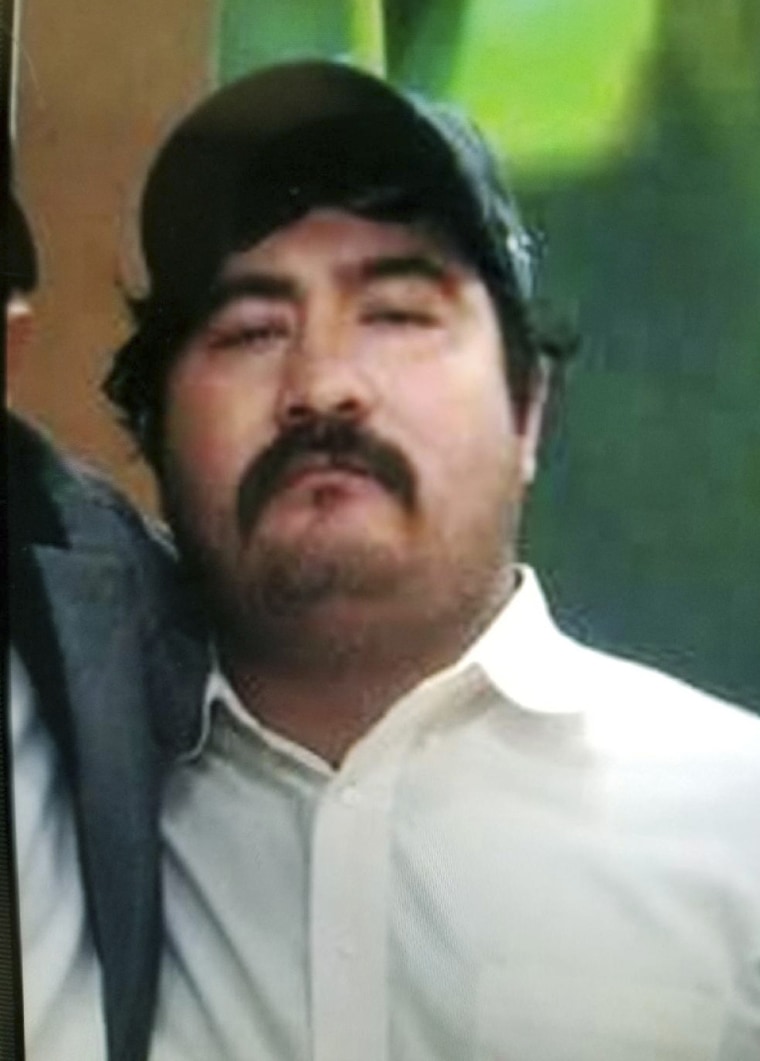The fatal police shooting of a deaf man in Oklahoma City has sparked outrage nationwide, particularly among disability rights advocates who say his death could have been prevented.
The man, Magdiel Sanchez, 35, was Tasered and shot dead on a porch Tuesday night after officers saw him holding up a metal pipe. Oklahoma City police Capt. Bo Mathews told reporters Wednesday that the officers had ordered him to put down the pipe.
When Sanchez didn't do so, they opened fire — even as neighbors yelled to police, "He can't hear you!"
The case is hardly the only police encounter involving people with disabilities: Sanchez is at least the fifth deaf person fatally shot by police in just the last couple of years, according to Helping Educate to Advance the Rights of the Deaf, or HEARD, a volunteer nonprofit that has tracked incidents of police brutality against deaf people going back 40 years.
The group has found many other nonfatal interactions between police and the deaf.
They say Sanchez's killing and the other instances of police brutality against deaf people highlight an urgent need to better educate officers.
"We can't presume that everyone can comply with orders on demand."
"It's tragic, but not surprising," HEARD Director Talila Lewis said of Sanchez's death. "We can't presume that everyone can comply with orders on demand."
Teaching officers how to recognize disabilities is critical, advocates say. Many police departments have such training: The Oklahoma City Police Department said that it has officers who know sign language, and told NBC News that recruits going through the police academy receive four hours of mandatory training specific to dealing with individuals with hearing impairments, along with "multiple" training sessions dealing with people with disabilities.
Devon Whitmore, a community advocate with DEAF Inc., a nonprofit in Missouri started by people who are deaf, has trained more than 300 officers in six police departments on how to interact with deaf people in the field.
He said the training aims to break down misconceptions that officers have about them, and provides law enforcement with solutions for communicating.
Related: Deaf Man Shot Dead by Oklahoma City Police as Neighbors Scream in Horror
Some of the tips are simple: "When you flash a light in someone’s face, they can't see you, and they can’t read your lips," he said.
Many law enforcement officers think deafness is rare, he added. But in reality, more than 1 million people are functionally deaf and 48 million have some hearing loss.
"Or they expect that all deaf people can read lips, and that's not true," he said. Even among those who can read lips, 30 percent of the English language is unintelligible through lip-reading, meaning many words can be missed.
That increases, Whitmore said, in dim lighting or instances where the officer is not close enough to the deaf person.
In a situation like Sanchez's, where someone is not responding to verbal commands, officers should try to use their hands.
"They need to put one hand out to show the sign for stop," Whitmore said. "Try to use the hands as much as possible." Officers shouldn't hesitate to write a message down on paper, or if there's time, call an interpreter, he added.
Another point that Whitmore makes in the training: Deaf people can look just like everyone else. "I don't use hearing aids so I look like an average person driving around or walking around," he said.
Many believe such training tips could have prevented Sanchez's death, which the National Association of the Deaf called "needless." The Maryland-based group said that while some police departments receive training on dealing with deaf or disabled policy, there doesn't appear to be any national training policy, even after other recent high-profile police killings of deaf people, such as Daniel Harris, 29, who was shot and killed by a North Carolina state trooper last August.
"This is not the first time that there have been a failure of communication between law enforcement officers and deaf persons resulting in the deaf person's death, and this absolutely needs to stop," said Howard Rosenblum, the National Association of the Deaf's CEO and director of legal services. "All law enforcement officers must be trained to identify when a person they are dealing with may be deaf, hard of hearing, or have disabilities of some kind."
Even with some training about disabilities, it's hard to recognize that someone is deaf, said Amaury Murgado, a special operations lieutenant with the Osceola County Sheriff's Office in Florida.
In 2013, Murgado wrote a powerful account for Police Magazine about nearly shooting a deaf suspect who was reaching in his pocket for what Murgado assumed was a weapon.
"As it turns out, he wasn't reaching for a gun but for a laminated card that explained he was deaf, a mute, and had directions for obtaining an emergency contact," Murgaro wrote. "When his emergency contact arrived, who was also a qualified interpreter, we sorted everything out."
Lewis, the head of HEARD, argued that training alone is not enough: "We need demilitarization. We need to look at alternative ways of keeping our community safe that don't involve law enforcement."


